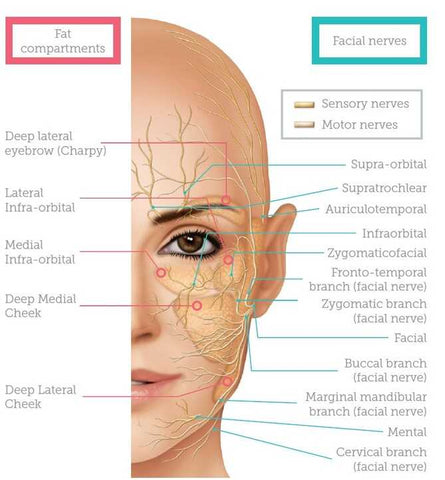Causes Of Under Eyes Dark Circles

Dark circles under your eyes mean that the skin under your eyes looks dark. Depending on your skin tone, this area may appear in shades of blue, purple, brown, or black. Dark circles under your eyes can make you look tired or older than you are.
There are several possible causes of dark circles under the eyes. But they are usually not a sign of a medical problem. Dark circles under your eyes are usually not a cause for concern. But you want to lighten the appearance of your under-eye circles for cosmetic reasons.
Causes of Dark Circles
Dark circles under the eyes are a set of symptoms. It includes darkening of the skin and possibly swelling under the lower eyelid. Medically, this area is called the infraorbital area, which is the part of the face between the eyes below and the roof of the mouth.
Research on the cause of under eyes dark circles is due to lacking of hydration, some important causes are.
- Genetics
- Stress or Fatigue
- Allergies
- Dehydration
- Sun Overexposure
- Smoking
- Anemia
- Age
- Eyestrain
1. Genetics
Some people are prone to dark circles under their eyes. They may have thin skin or large deposits of fat in the infraorbital area that cause shadowing. Others have veins near the skin's surface, which produce more pigmentation.

Although according to the study, these features are nothing to worry about dark circles. Dark circles can be a physical trait that is inherited, which is why it seems to run in families.
2. Stress or Fatigue
Many dark circles or bags under their eyes are associated with fatigue or stress. When one experiences stress or fatigue, blood flow to the infraorbital region may slow.
The skin of this area is thin, and pooled blood can produce a dark color. At the same time, pooled blood can constrict blood vessels, causing puffy bags under the eyes.
3. Allergies
Common allergic reactions such as high fever cause inflammation and swelling in the eye area. It can lead to dark circles and bags.
4. Dehydration
Dehydration is also the main cause of dark circles. When the body is not well hydrated, the skin under your eyes starts to look dull, and your eyes look sunken. It is due to the proximity of the primary eye bone.
5. Sun Overexposure
Sun exposure can cause your body to produce too much melanin, the pigment that gives your skin its color. Too much sun, especially to your eyes, can cause discoloration in the surrounding skin.
6. Smoking
Smoking can cause you to lose collagen, which makes the already thin skin under the eyes even thinner. It can make the appearance of dark circles more dramatic.
7. Anemia
Anemia occurs when your level of red blood cells is lower than normal. It may make you feel:
- Dizzy
- Weak
- Lightheaded
- Short of breath
- Tired
If you are Anemic, you may also notice that your skin is paler than usual, and you may have dark circles under your eyes. Talk to a doctor about getting blood work to check your iron levels.
8. Age
Collagen wears out with age, and your skin is often thinner, so dark circles and puffiness is more common in older people. It can make the red-blue blood vessels under your eyes more visible.
Some people also may develop puffy eyelids or hollows under their eyes as they age. These physical changes can cause shadows that appear as dark circles under the eyes.
9. Eyestrain
Staring at your computer screen television can strain your eyes. This stress can cause the blood vessels around your eyes to dilate. As a result, the skin around your eyes may darken.

How to Treat Dark Circles
Infect many people want to get rid of dark circles, but there is no authentic way to treat dark circles surely. In the formation of dark circles, Genetics plays an important role. 
However, some treatment options can help. It helps to understand the causes of your dark circles, like lack of sleep, allergies, or thin skin. Once you identify the cause, you can choose a treatment that works for you.
1. Self-Care
Sometimes, dark eyes can reflect that you are not taking care of your skin. Make sure to drink plenty of water, get enough sleep, and avoid smoking.
Not getting enough sleep also increases stress, which can worsen dark circles. You will probably feel better overall and may see your dark circles lighten.

Try to reduce or eliminate sunlight on your face. Ensure you wear sunscreen with a sun protection factor (SPF) of 50 daily. Sunglasses and a hat protect the skin from the sun and prevent dark circles under your eyes from worsening.
2. Cool Compress
Applying a cool compress to your eyes can reduce inflammation. For added benefits, try applying thick slices of cold cucumber to your eyelids for about 10 minutes.
Then wash the area with cold water. A Cucumber contains vitamin K, which has been linked to reducing dark circles and improving skin elasticity.
3. Treat Allergies
If allergies cause dark circles, treating the symptoms may reduce the appearance of dark circles or bags.
Take a daily antihistamine at the time of year when your symptoms are worst. Use an air purifier, shower before bed, and keep windows closed.
4. Use Eye Cream

Over-the-counter (OTC) eye serums can reduce under-eye bags and dark circles, especially if you use them for a long time. Look for a cream containing vitamins K and E and a topical antihistamine, which can reduce inflammation.
5. Consider Fillers
Dermal fillers are substances injected by a dermatologist to plump up the underside of the skin.
They can help reduce wrinkles and hide under-eye discoloration. A professional must inject fillers, so talk to a dermatologist if you're interested.
6. Laser Treatment
Laser treatments can use to lighten the skin under the eyes and reduce the appearance of wrinkles that can make dark circles worse.
A dermatologist can help you determine if laser treatment is right for you.
ConclusionPeople can develop pimples and acne on the forehead when small glands under the skin's surface become blocked. Acne most often forms on a person's forehead, although it can develop anywhere on the body.If you are facing forhead acne then this blog will help you to treat your forhead acne.
Dark circles can affect anyone of any age and race for various reasons. Genetics, aging, and lifestyle factors play a role in developing dark circles. People may also find that allergies, nutritional deficiencies, or underlying health conditions can cause dark circles.
If people are concerned about the appearance of dark circles, they can visit a dermatologist for treatment options and check for any underlying health conditions.




